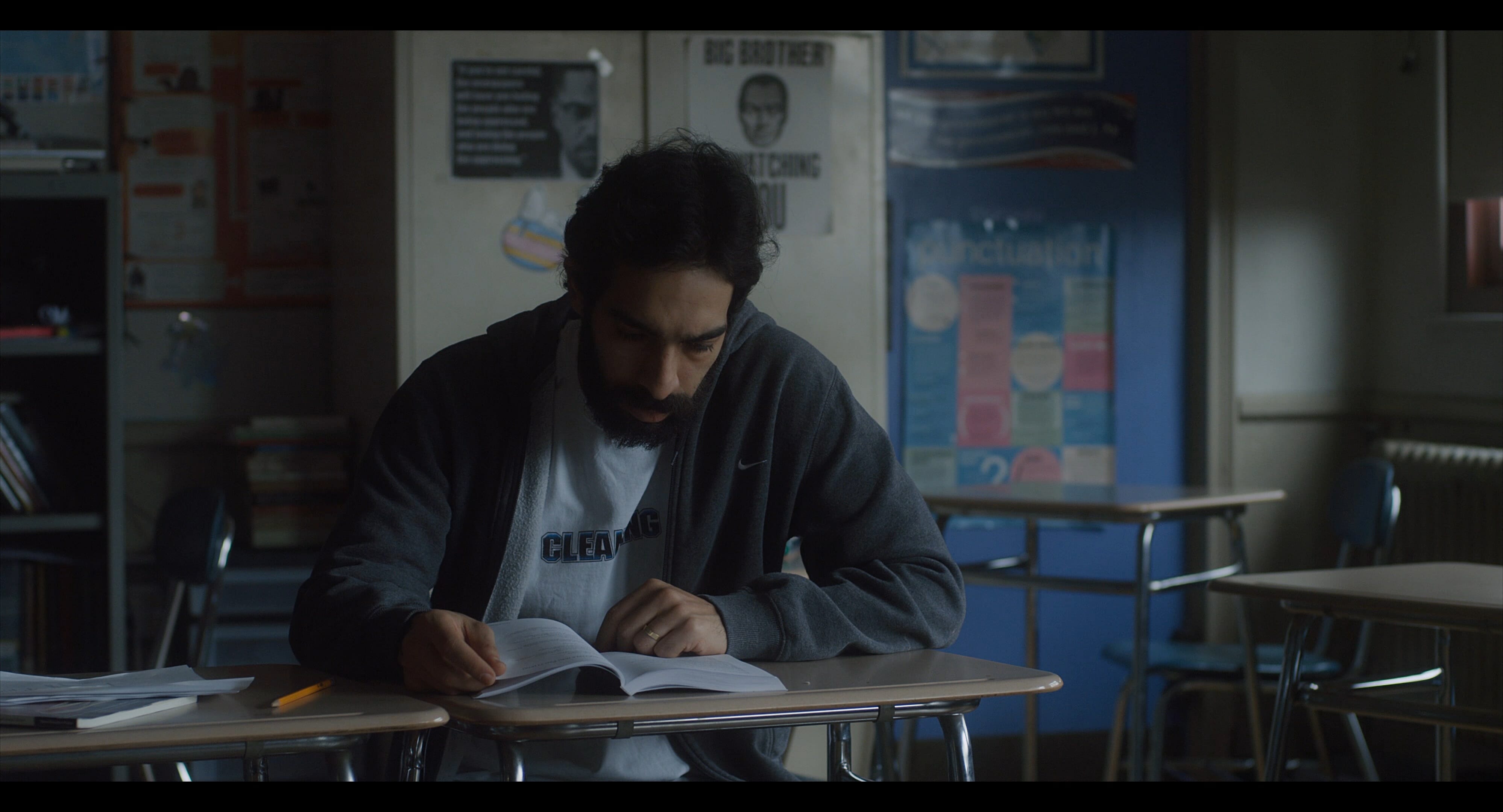Amid the Trump administration’s frequent and fervent attempts to strip away protections for immigrants, keeping current on which groups are being affected by what policies has proven more difficult than ever.
Issuing a travel ban on majority-Muslim countries, rescinding the Deferred Action for Childhood Arrivals (DACA) program, launching national Immigration Customs and Enforcement (ICE) raids that split apart families, minimizing legal immigration, ushering out nationals whose countries have Temporary Protected Status—the list goes on. The results of these efforts have heads spinning and commentators speaking in generalities to accurately, but shallowly, cover the swath of the country affected by these changes.
But at this year’s South By Southwest (SXSW) film conference in Austin, Texas, filmmakers dove deeper on immigration narratives, zeroing in on individuals and the physical, cultural, and social exchanges that have made our country formerly known as a “nation of immigrants” what it is today. While such narratives punctuated the festival at best—an estimated dozen or so films touched on immigration in some manner—the directors behind these projects brought immigration narratives to a conference and to a state that have had, and continue to have, complicated relationship with immigrants: Texas Gov. Greg Abbott consistently lambasts cities with “sanctuary” status; meanwhile this year’s SXSW contracts removed a clause forewarning the notification of ICE if international attendees violated U.S. law.
Of this year’s SXSW work, here are four immigration documentaries and one short film that expand our understanding of the state of U.S. immigration and what could happen under the continued targeting by President Donald Trump.
They Live Here, Now
As Congress continues to drag to find solutions for undocumented people, much of the national narrative surrounding immigrants has strayed away from the people who had little choice but to come to this country. They Live Here, Now, directed by Jason Outenreath, shares portraits of refugees from countries such as El Salvador and Somalia, discussing how they ultimately found themselves at Casa Marianella, an emergency homeless shelter for immigrants and asylum seekers based in Austin.
Given the temporary nature of the house and the high turnover of refugees who use the facility, Outenreath takes an unorthodox approach to documentary filmmaking by weaving the story of a fictional teenage asylum seeker and her attempt to be reunited with family in the U.S. While Casa Marianella staff’s interactions with the teen occasionally disrupt the sincerity of her plight, They Live Here, Now reins back in the authenticity with minutes-long, uninterrupted interviews with refugees staying at the house, disclosing their encounters with immigration agents and the dangerous conditions of their home country that drove them here.
The Terrorist Hunter
Directed by Ann Shin, The Terrorist Hunter follows the story of Rita Katz and her work as a counterterrorism expert, a profession lauded by some and shamed by others. Whereas Katz’s work is decried for its seeming attempt to create concern over terrorism where it may not exist, Shin explores other elements of Katz’s life that groups ranging from ISIS to white supremacists have threatened—namely, Katz’s background as a terrorism survivor herself, having been born in Iraq and escaped the persecution of Jewish people in the country. This disclosure describes the unlikely background of someone who would be in the “terrorist hunting” game, let alone sharing a misinformed opinion of extremism and a hidden agenda.
But while the current administration likes to focus on “counterterrorism” measures to block visiting nationals from Muslim-majority countries, The Terrorist Hunter examines the manner in which contracts for counterterrorism experts may breed misleading agendas—and in turn generate an unwarranted response from, and wrongful targeting of people by, the U.S. government. In partnership with the Center for Investigative Reporting, The Terrorist Hunter calls attention to the self-serving and harmful nature of the counterintelligence industry in an exploratory, honest light, developing parallels with the ways in which the Trump administration has stoked debased fears of Islam—and fires of white supremacy—in the minds of American people.
A Tuba to Cuba
In a time of political divisiveness, A Tuba to Cuba argues the undeniable relationships between New Orleans, Cuba, and the African continent, through the travels of the historic jazz group Preservation Hall Jazz Band. A Tuba to Cuba, directed by T.G Herrington and Danny Clinch, follows the mission of Preservation Hall director Ben Jaffe to carry out the wish of his late father, co-founder Allan Jaffe, to take the group to Cuba, the birthplace of jazz, following the ease of the embargo between the country and territory in 2009.
The film follows bandmates as they meet other musicians, jamming with groups in the streets of Havana and learning about African traditions carried on by the descendants of enslaved ancestors. Though the Americans and Cubans spoke little of the others’ languages, audiences witness interactions unfold via a universal understanding of jazz, illustrating a cultural bond stronger than politics can break.
On Her Shoulders
In the wake of the months-long Me Too movement, newsrooms and media studios are still relearning how to report and accurately depict accounts of sexual harassment, assault, and other forms of interpersonal violence. In On Her Shoulders, however, audiences grapple with the invasive and often brazenly exploitative ways the media re-victimizes a survivor, despite few if any indications that the constant retelling of her pain is progressing the liberation of her people.
Director Alexandria Bombach follows then-23-year-old Nadia Murad, who has become a de facto representative for other survivors and victims of ISIS after the terrorist group destroyed and overtook her northern Iraq home in 2014 and killed thousands of Yazidi people. Murad, a survivor of sex slavery, has made it her mission to speak out on behalf of the Yazidis, meeting with innumerable diplomats, politicians, and media personalities in hopes that countries will open their borders to refugee Yazidis and help end ISIS’s rule of her homeland. On Her Shoulders offers a deeply emotional, humanizing glimpse into the ways Murad and survivors such as herself must re-traumatize themselves in order to make the world care that such suffering persists. It shares unapologetic lessons on empathy, integrity, and the resilience of refugees and survivors alike.
Carro
While not a documentary, Carro, written and directed by Gustavo Rosa, takes viewers through the moment a Brazilian immigrant decides that his three-month visit in the U.S. will take roots: when he uses most of his savings to buy a car. Carro is a short, pointed, yet descriptive and emotional look into the endeavors of newfound immigrants and the ways in which their experience is shaped by their families and communities, including people who may not be supportive in both camps.

For Rosa, the film’s fruition speaks more to the “immigrant experience” than the plot alone. A former undocumented immigrant for 13 years, Rosa cast former undocumented immigrants in each role. Rosa’s father plays one of the supporting characters, whose dialogue details an experience the actor himself had as a newly arrived immigrant; meanwhile, the main character goes through an encounter that Rosa’s mother had experienced in their hometown of Boston. Though Carro gives insight to the beginning of an undocumented immigrant’s time in the U.S., the mere existence of Rosa’s work is a statement of a first-generation American’s experience.
